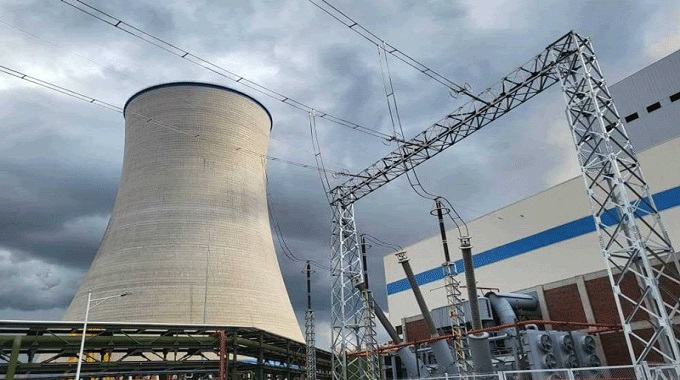The energy sector continues to gain momentum, with several investors praising the Government’s investment climate and policy direction, particularly in renewable energy.
As the country accelerates its energy transformation, growing collaboration between communities, private investors and institutional enablers is emerging as key to achieving sustainable and inclusive access to electricity and clean cooking.
The surge in investor confidence coincides with the development of the National Energy Compact for the Republic of Zimbabwe, a policy initiative spearheaded by the Ministry of Energy and Power Development.
The Compact, introduced by the Minister in London on June 4, 2025, as part of the Mission 300 (M300) initiative, seeks to provide 300 million Africans with clean electricity and cooking solutions by 2030.
It is backed by the World Bank and the African Development Bank and follows the M300 declaration signed by African governments in Dar es Salaam earlier this year.
Stakeholders in the renewable energy sector have welcomed the Compact and said there was a need for a business-friendly regulatory environment. Among the concerns raised was the importance of clear policies for integrating mini-grid projects into the national grid and the provision of financial incentives.
Mr Isaiah Nyakusendwa, chairperson of the Renewable Energy Association of Zimbabwe (REAZ), said foreign investment was driven by confidence in strong guarantees and supportive regulations.
“The enabling environment benefits significantly from supportive policies,” he said.
“For example, if the private sector wants to invest in the mini-grid sector, there should be assurances that the power utility — ZESA or REAS — will connect these mini-grids once they are established.”
Mr Nyakusendwa also said there was a need for financial incentives to attract and scale up investment.
He said affordability for end-users remained a key factor in achieving universal electrification.
One of Zimbabwe’s leading renewable energy companies, Nyangani Renewable Energy, has been operating since 2007. Its managing director, Mr Ian McKersie, said the company currently generates 40 megawatts of electricity in Zimbabwe through hydro and solar projects.
“We have been feeding into the grid for over 10 years,” he said.
“Our first project is now 15 years old, and we are currently developing a new hydro project in Nyanga. This reinforces our long-term commitment to Zimbabwe’s energy sector.”
The role of Independent Power Producers (IPPs) is also expanding. Zimbabwe aims to address its energy access challenges through least-cost investments, supported by regulatory and financial reforms to attract private capital.
Mr Victor Utedzi, president of the Zimbabwe Independent Power Producers Association (ZIPPA), said private sector players have invested nearly US$400 million in the energy sector, primarily in solar, wind and hydro.
“In the last 10 years, the IPPs’ contribution has grown from almost zero to nearly 5 percent of the country’s total electricity. Our goal is to reach 30 percent by 2030,” he said.
Backing the investments was ZimGreenCo, an energy intermediary dedicated to de-risking energy projects.
Business Development Officer Ms Chiedza Musekiwa said the organisation facilitates bankable Power Purchase Agreements (PPAs) backed by a liquidity buffer to attract investors.
“We mitigate off-taker risk by acting as a credible intermediary. Investors are more willing to fund projects knowing that we can ensure timely payments through our liquidity buffer,” she said.
Communities are also beginning to feel the positive impact of energy expansion.
In Hwakwata, Chipinge, business owners and residents are reporting significant improvements.
Shop owner Mr Aaron Mlambo, whose store was previously robbed during power outages, praised new street lighting for enhancing security and extending business hours.
At the Hwakwata Clinic, a nurse recounted the shift from using lamps and “yellow boxes” for night deliveries to reliable solar-powered lighting.
The facility now boasts better vaccine storage and safer nighttime operations.
“Now that we have electricity that lights up in the evening, we can ensure better security for our clinic, shops and homes,” Mr Mlambo said.
Currently, Independent Power Producers — including mini-hydro, solar PV systems, captive solar and captive power plants — supply nearly 200 megawatts to the national grid.
As Zimbabwe positions itself as an attractive destination for energy investment, stakeholders are hopeful that the implementation of the National Energy Compact will further unlock capital, improve energy access, and support long-term economic growth.

